Mother Nature gives and Mother Nature takes away.
When it comes to scenic beauty, Hualien was dealt a winning hand. But one year ago today, a 7.2-magnitude earthquake wrecked the county’s number-one tourist attraction, Taroko Gorge in Taroko National Park. Then, in the second half of last year, two typhoons inflicted further damage and disruption.
Not surprisingly, for Hualien’s tourist-focused businesses, the twelve months since the earthquake have been more than dismal.
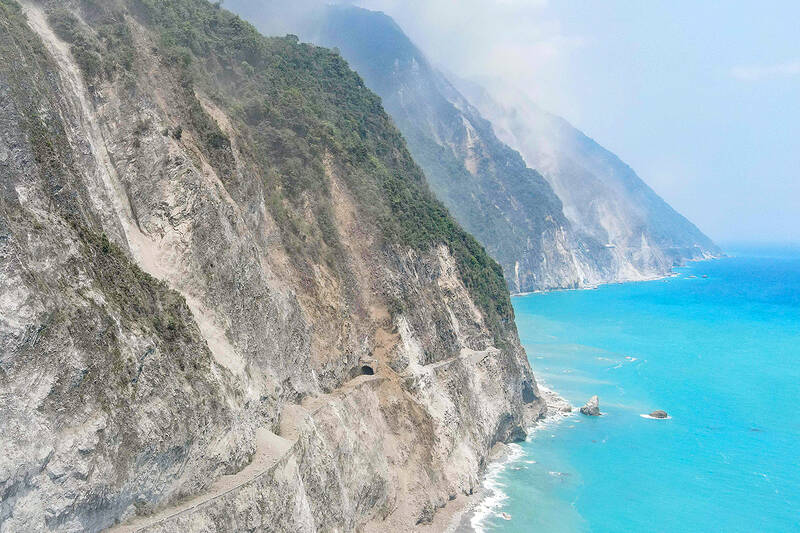
Photo: AFP
Among those who experienced a precipitous drop in customer count are Sofia Chiu (邱心怡) and Monica Lin (林宸伶), co-founders of Karenko Kitchen, which they describe as a space where they can share “our love for food, travel and indigenous culture in Hualien.”
According to Chiu, the months immediately after the earthquake saw “a sharp decline” in visitor numbers. Starting in September last year, however, the duo noticed “a gradual return of customers, with December seeing a recovery close to pre-earthquake levels. Currently our business has recovered to 70 to 80 percent of what it was before the disaster.”
Chiu’s observations are in line with some of the numbers published by the Tourism Administration’s Tourism Statistics Database.
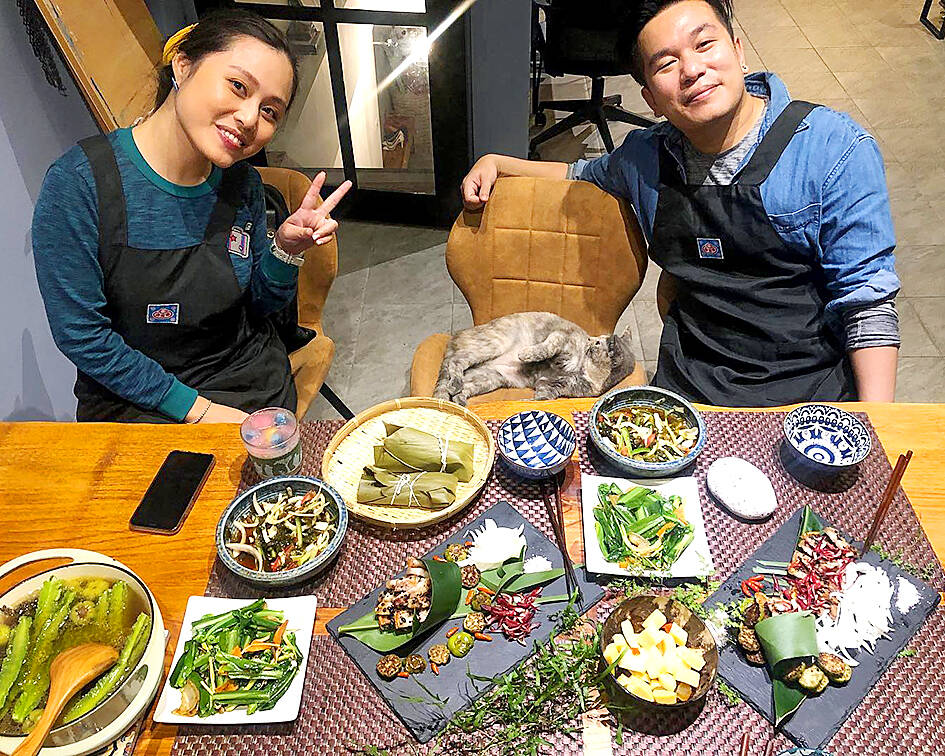
Photo Courtesy of Karenko Kitchen
In the final three months of last year, Hualien’s Qixingtan (七星潭) — less than 7km from Karenko Kitchen — saw a total of 89,511 visitors, compared to 106,575 in the same period of 2023. But there hasn’t been much of a bounce back at Liyu Lake (鯉魚潭). To the despair of business owners who rent out bicycles and pedalos at the lake in Hualien’s Shoufeng Township (壽豐), tourist numbers in the final quarter of last year were down year-on-year by two thirds.
VISITORS FROM NEAR AND AFAR
Prior to the pandemic, international travelers accounted for the majority of those signing up for Karenko Kitchen’s cooking classes.
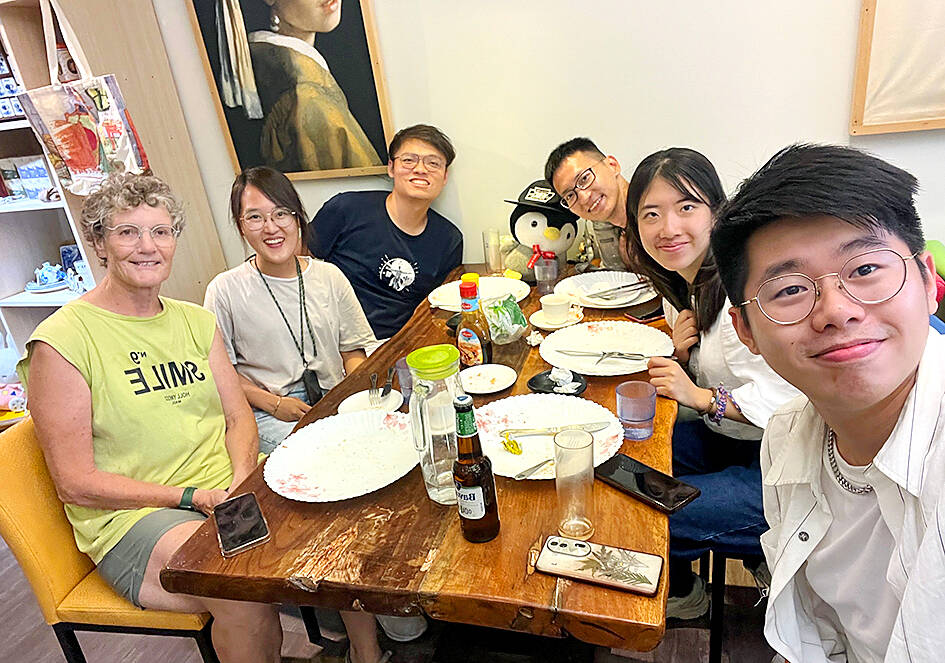
Photo courtesy of Jany Leijenhorst
“However, in recent years, we’ve seen an increasing number of Taiwanese. Like many businesses in Hualien, we’re highly dependent on tourism, both domestic and international,” Chiu says.
Crucially, the kitchen isn’t Chiu or Lin’s only source of income.
“Both of us have other jobs. This has allowed us to weather the crisis with relatively less financial strain. But we’ve witnessed firsthand the struggles of many local businesses. Some have been forced to close, while those that remain continue to face significant challenges,” Chiu says.

Photo courtesy of Jany Leijenhorst
Before the earthquake, Karenko Kitchen collaborated with the county government on various tourism initiatives.
“These partnerships were affected by the disaster, but we’ve never relied heavily on government support, so the impact on our business has been minimal,” Chiu says.
The pair express optimism on both the personal and regional level, Chiu saying she believes that “businesses which persevere through such adversity will emerge stronger.”
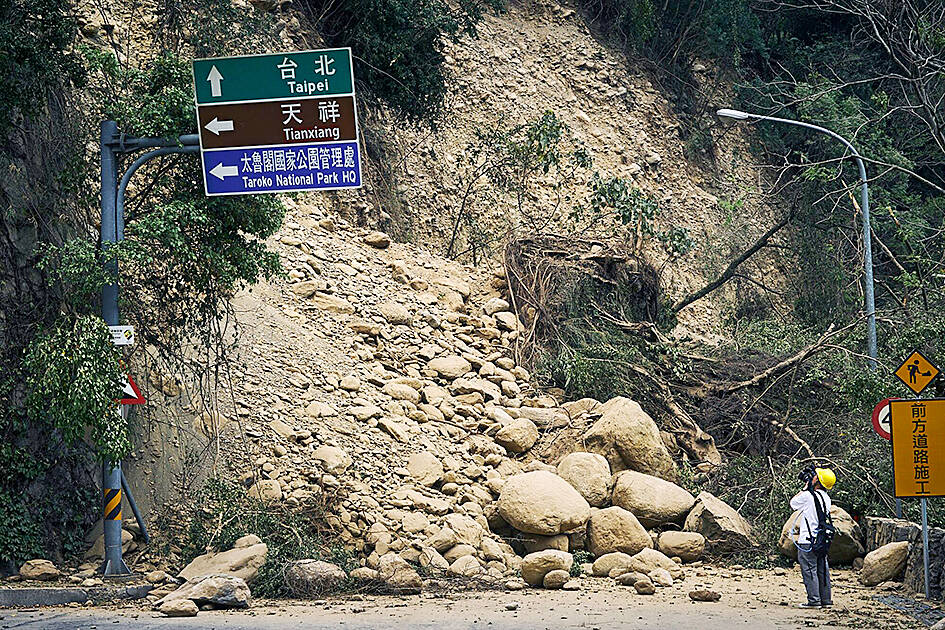
Photo: Bloomberg
Expressing confidence that “the impact of the earthquake will fade from public memory, and that visitors will return to Hualien,” Chiu encourages visitors to experience “what our beautiful region has to offer and to learn about its unique culture.”
Another entrepreneur says that, in the wake of the earthquake, her income plummeted by around 80 percent. Before the disaster, Jany Leijenhorst typically welcomed roughly equal numbers of tourists and locals to the Dutch pancake house that bears her name in Hualien City.
“For the first three months after the earthquake, I offered discounts of 50 percent, but I think only three tourist families came to my pancake house in that time, and they were visiting relatives or they’d come here to support Hualien,” says Leijenhorst, a Dutch citizen who’s lived in the east coast city since arriving in Taiwan about 13 years ago.
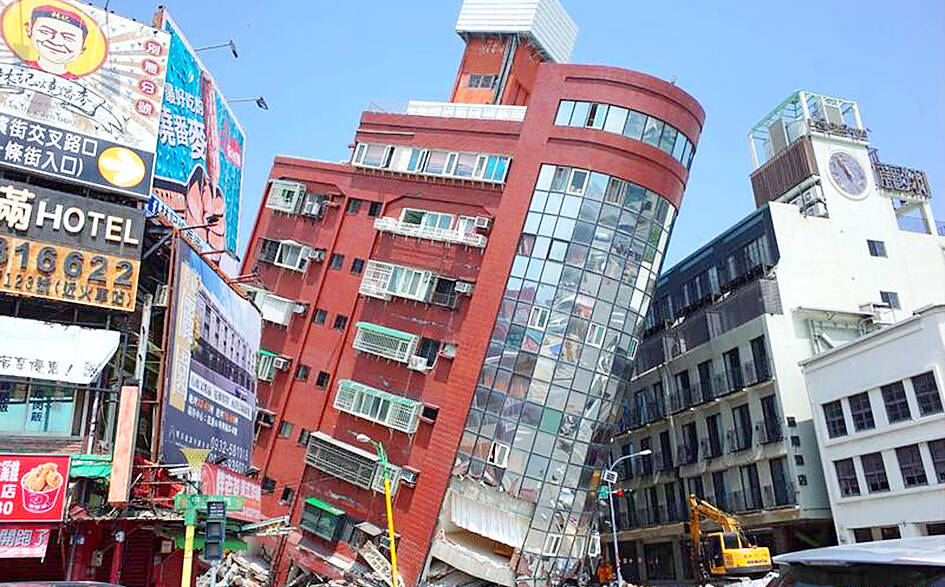
Photo: Hua Meng-ching, Taipei Times
“Right now, from Hualien residents I’m making around 70 percent of what I used to make, but from tourists it’s a mere 30 percent or so,” she says.
An increase in the number of school groups who come to Leijenhorst’s pancake house to learn about the culture and cuisine of the Netherlands has gone some way to make up for the shortfall in regular patrons.
Originally a mechanical engineer who specialized in developing new materials, Leijenhorst wasn’t able to find a job in Hualien that matched her professional background. Determined to stay in a place she loves, she opened the pancake house as a way to build cultural exchanges, and also because it offered a route to permanent residency.
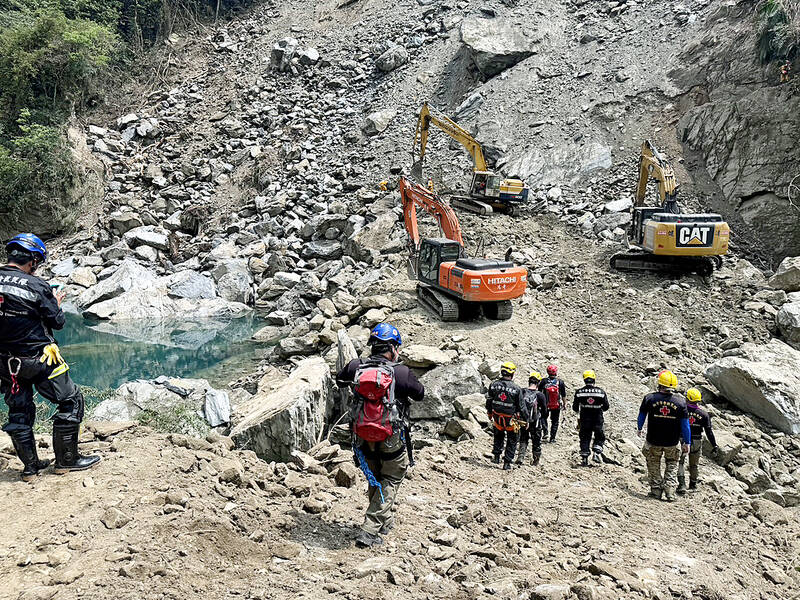
Photo courtesy of the Hualien Fire Department
Leijenhorst says she’s fortunate in that her overall financial situation has allowed her to survive the downturn. Many others haven’t been so lucky. She’s seen a number of food and accommodation businesses close down, she adds.
In the short term, Leijenhorst isn’t optimistic about the local tourism industry. The local and national governments have been trying to show there’s more to Hualien than Taroko Gorge, and they’ve offered incentives to visit. Leijenhorst says these efforts had a noticeable yet temporary effect, and she doesn’t expect tourist numbers to return to pre-quake levels this year or next.
Even though parts of Taroko National Park are scheduled to reopen before the end of this year, she’s resigned to it taking “maybe five to seven years before it’s back to its old beauty.”
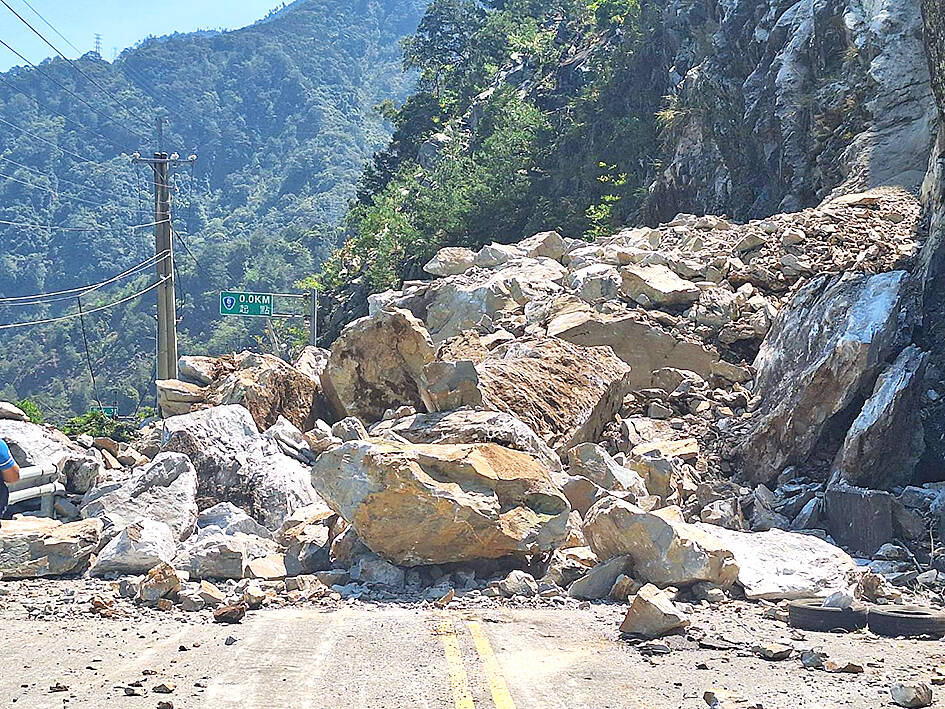
Photo courtesy of reader
“It’s painful to think about,” she continues. “I’d love to go there for hiking and mountaineering, but the trails don’t exist anymore.”
Referring to a Truku tribal village located deep inside the national park, she says that she has friends from Datong (大同部落) who can’t return to their old homes.
On Oct. 12 last year, as part of its efforts to revitalize the local economy, the Hualien County Government began sending county residents stimulus vouchers worth NT$3,000. Much to her annoyance, Leijenhorst was excluded from this program, because she isn’t a citizen and she’s not married to a Taiwanese.
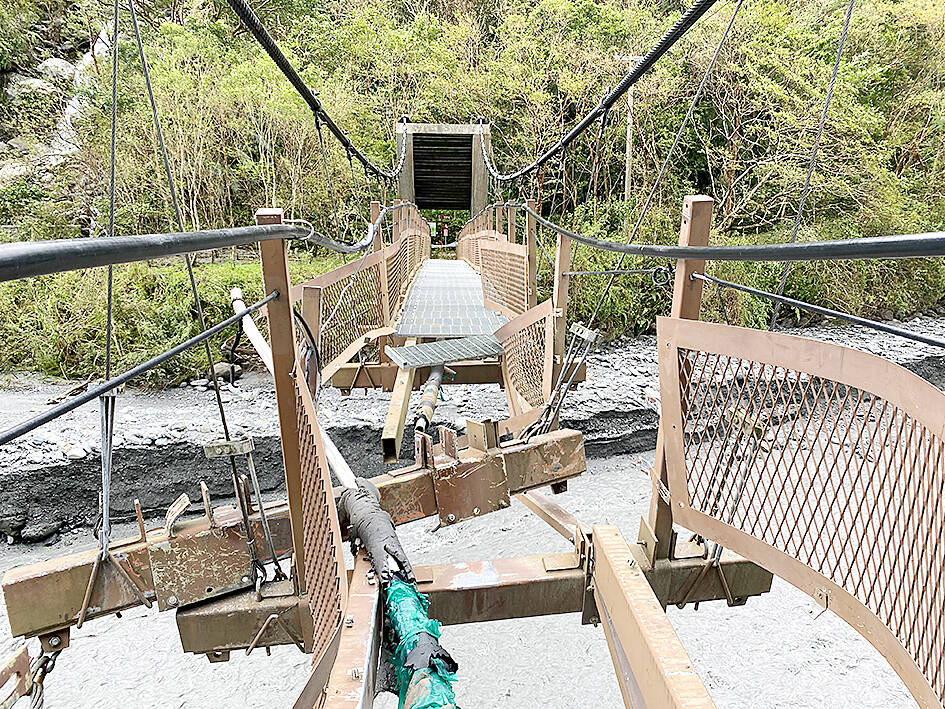
Photo courtesy of the Hualien Forestry Protection Bureau
Extending the benefit to people like her wouldn’t have cost a lot, she says. She complained to a local politician, but to no avail.
“I’m still mad about this,” she adds — and it’s not the only aspect of the official response to the disaster that bothers her.
“There are still people whose homes haven’t been repaired and they’ve not been rehoused. This is deeply shameful, especially when you consider how much money is spent on non-essential road construction. A couple of weeks ago, some customers told me they’re still living with friends, because they can’t find another solution,” Leijenhorst says.
COMMITMENT VS DOLLARS-AND-CENTS
One reason why Karenko Kitchen and Jany’s Dutch Pancake House are still in business is that the owners of both are committed to Hualien. Other enterprises were forced to shutter because of the physical consequences of last year’s natural disasters, or because they faced rising costs.
Butterfly Valley Resort in Hualien’s Ruisui Township (瑞穗) ceased operations on Feb. 7 this year, mainly because of typhoon damage to trails and facilities inside Fuyuan National Forest Recreation Area (富源國家森林遊樂區), where the resort is located.
According to a statement on the Web site of the Hualien Branch of the Forestry and Nature Conservation Agency, since the agency signed a contract with the resort’s operators in 2004, the latter has paid the former NT$54.94 million in royalties. Sixty jobs for locals were created and at least NT$4 million per year was contributed to welfare projects in the area.
Predicting that repairs will take two to three years, the agency’s statement says it plans to invest in the restoration and development of the forest recreation area, after which it’ll identify “the most suitable business model [for] a high-quality scenic spot with both ecological conservation and forest recreation functions.”
For The Leaf Inn, a 12-room hotel near Hualien’s harbor, the going was far from easy well before the quake. In an announcement reported on Aug. 11 last year by the Chinese-language United Daily News, the hotel’s operators said that, since the lifting of pandemic-related travel restrictions, Taiwanese have preferred overseas trips to taking vacations closer to home, and that Taiwan “hasn’t been the first choice” for foreigners.
The April 3 earthquake and Typhoon Gaemi (which made landfall on July 24 and severely disrupted travel between Hualien and Taipei) “rubbed salt into the tourism industry’s wounds.”
But the final nail in the hotel’s coffin, the announcement implies, was a landlord who insisted on increasing the rent during contract renewal. The uptick in tourism that some saw in late last year wasn’t enough for the operators to review their decision, so — as originally scheduled — The Leaf Inn closed for good on Feb. 9.

In the March 9 edition of the Taipei Times a piece by Ninon Godefroy ran with the headine “The quiet, gentle rhythm of Taiwan.” It started with the line “Taiwan is a small, humble place. There is no Eiffel Tower, no pyramids — no singular attraction that draws the world’s attention.” I laughed out loud at that. This was out of no disrespect for the author or the piece, which made some interesting analogies and good points about how both Din Tai Fung’s and Taiwan Semiconductor Manufacturing Co’s (TSMC, 台積電) meticulous attention to detail and quality are not quite up to

April 21 to April 27 Hsieh Er’s (謝娥) political fortunes were rising fast after she got out of jail and joined the Chinese Nationalist Party (KMT) in December 1945. Not only did she hold key positions in various committees, she was elected the only woman on the Taipei City Council and headed to Nanjing in 1946 as the sole Taiwanese female representative to the National Constituent Assembly. With the support of first lady Soong May-ling (宋美齡), she started the Taipei Women’s Association and Taiwan Provincial Women’s Association, where she

It is one of the more remarkable facts of Taiwan history that it was never occupied or claimed by any of the numerous kingdoms of southern China — Han or otherwise — that lay just across the water from it. None of their brilliant ministers ever discovered that Taiwan was a “core interest” of the state whose annexation was “inevitable.” As Paul Kua notes in an excellent monograph laying out how the Portuguese gave Taiwan the name “Formosa,” the first Europeans to express an interest in occupying Taiwan were the Spanish. Tonio Andrade in his seminal work, How Taiwan Became Chinese,

Mongolian influencer Anudari Daarya looks effortlessly glamorous and carefree in her social media posts — but the classically trained pianist’s road to acceptance as a transgender artist has been anything but easy. She is one of a growing number of Mongolian LGBTQ youth challenging stereotypes and fighting for acceptance through media representation in the socially conservative country. LGBTQ Mongolians often hide their identities from their employers and colleagues for fear of discrimination, with a survey by the non-profit LGBT Centre Mongolia showing that only 20 percent of people felt comfortable coming out at work. Daarya, 25, said she has faced discrimination since she